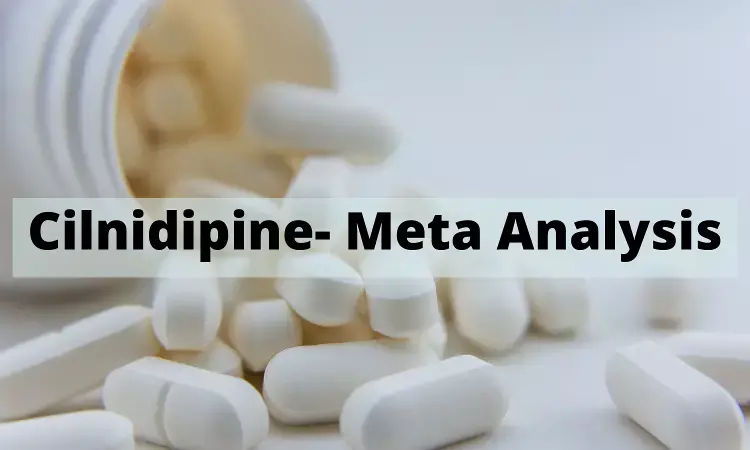- Home
- Medical news & Guidelines
- Anesthesiology
- Cardiology and CTVS
- Critical Care
- Dentistry
- Dermatology
- Diabetes and Endocrinology
- ENT
- Gastroenterology
- Medicine
- Nephrology
- Neurology
- Obstretics-Gynaecology
- Oncology
- Ophthalmology
- Orthopaedics
- Pediatrics-Neonatology
- Psychiatry
- Pulmonology
- Radiology
- Surgery
- Urology
- Laboratory Medicine
- Diet
- Nursing
- Paramedical
- Physiotherapy
- Health news
- Fact Check
- Bone Health Fact Check
- Brain Health Fact Check
- Cancer Related Fact Check
- Child Care Fact Check
- Dental and oral health fact check
- Diabetes and metabolic health fact check
- Diet and Nutrition Fact Check
- Eye and ENT Care Fact Check
- Fitness fact check
- Gut health fact check
- Heart health fact check
- Kidney health fact check
- Medical education fact check
- Men's health fact check
- Respiratory fact check
- Skin and hair care fact check
- Vaccine and Immunization fact check
- Women's health fact check
- AYUSH
- State News
- Andaman and Nicobar Islands
- Andhra Pradesh
- Arunachal Pradesh
- Assam
- Bihar
- Chandigarh
- Chattisgarh
- Dadra and Nagar Haveli
- Daman and Diu
- Delhi
- Goa
- Gujarat
- Haryana
- Himachal Pradesh
- Jammu & Kashmir
- Jharkhand
- Karnataka
- Kerala
- Ladakh
- Lakshadweep
- Madhya Pradesh
- Maharashtra
- Manipur
- Meghalaya
- Mizoram
- Nagaland
- Odisha
- Puducherry
- Punjab
- Rajasthan
- Sikkim
- Tamil Nadu
- Telangana
- Tripura
- Uttar Pradesh
- Uttrakhand
- West Bengal
- Medical Education
- Industry
Cilnidipine shows promise as first-line antihypertensive, both in monotherapy or combination: Meta-analysis

New Delhi : A team of researchers have highlighted that Cilnidipine has similar anti-hypertensive effects compared with other first-line antihypertensive drugs commonly used in practice. The findings of the meta-analysis have been put forth in the Cureus Journal.
Observing the results, they further elaborated that "We recommend Cilnidipine as a novel first-line CCB for the management of hypertension either as a monotherapy or as a combination therapy."
Hypertension is one of the most common cardiovascular diseases, and the prevalence of hypertension continues to rise across the globe. National and international guidelines recommend angiotensin-converting enzyme (ACE) inhibitors or angiotensin receptor blockers (ARBs), calcium channel blockers (CCBs), diuretics, and beta-blockers for the management of hypertension. CCBs are among the most used antihypertensive medications.
Cilnidipine is a newer dihydropyridine CCB shown to have a prolonged antihypertensive property, being a L/N-type calcium channel blocker, it lowers the BP in part by sympathetic nerve inhibition at the peripheral sympathetic nerve endings in vivo, and has reported a lower incidence of pedal edema compared to amlodipine.
With such background , the researchers under Chakraborty et al, aimed to carry out a meta-analysis of comparative randomized and non-randomized clinical trials evaluating the effect of Cilnidipine monotherapy or combination therapy on systolic blood pressure (SBP), diastolic blood pressure (DBP), and pulse rate (PR) over 48 weeks of therapy.
Study design consisted of searching PubMed (MEDLINE) and Google scholar databases to identify studies designed to evaluate the effects of Cilnidipine in the treatment of hypertensive patients. The study criteria for inclusion into the meta-analysis were all prospective, randomized, and non-randomized clinical studies published till March 2021, studies published in a peer-reviewed journal, the inclusion of patients with hypertension, assessment of blood pressure and heart rate, and a follow-up of four weeks or longer. The primary outcomes assessed were changes in SBP, DBP, and PR from baseline at the end of therapy compared between the Cilnidipine and other CCB's.
The key facts that were revealed have been summarized.
- The initial search identified 82 potential articles; of these, 24 met the inclusion criteria. Studies with <4 weeks treatment period and those not having a CCB were excluded.
- Cilnidipine caused a significant reduction (p<0.05) in SBP, DBP, and PR at end of therapy, whereas the reduction in SBP, DBP, and PR with Cilnidipine were similar to other CCB's (p>0.05).
- The results of this meta-analysis revealed that there were no significant differences in the efficacy in the treatment of hypertensive patients with Cilnidipine and the other therapies.
Observing the results, the team concluded that "We recommend Cilnidipine as a novel first-line CCB for the management of hypertension either as a monotherapy or as a combination therapy. Cilnidipine is highly lipophilic and shows low BP variability among CCBs. The organ protection, especially the reno-protective effect of Cilnidipine deserves special attention. In earlier trials, Cilnidipine was found to be safe and effective in reducing microalbuminuria in hypertensive patients. We warrant further studies to reinforce the cardio-protection and renoprotection efficacy of Cilnidipine, particularly in hypertensive diabetic patients."
For full article follow the link: DOI: 10.7759/cureus.19822
Source: Cureus
Dr Satabdi Saha (BDS, MDS) is a practicing pediatric dentist with a keen interest in new medical researches and updates. She has completed her BDS from North Bengal Dental College ,Darjeeling. Then she went on to secure an ALL INDIA NEET PG rank and completed her MDS from the first dental college in the country – Dr R. Ahmed Dental College and Hospital. She is currently attached to The Marwari Relief Society Hospital as a consultant along with private practice of 2 years. She has published scientific papers in national and international journals. Her strong passion of sharing knowledge with the medical fraternity has motivated her to be a part of Medical Dialogues.
Dr Kamal Kant Kohli-MBBS, DTCD- a chest specialist with more than 30 years of practice and a flair for writing clinical articles, Dr Kamal Kant Kohli joined Medical Dialogues as a Chief Editor of Medical News. Besides writing articles, as an editor, he proofreads and verifies all the medical content published on Medical Dialogues including those coming from journals, studies,medical conferences,guidelines etc. Email: drkohli@medicaldialogues.in. Contact no. 011-43720751


